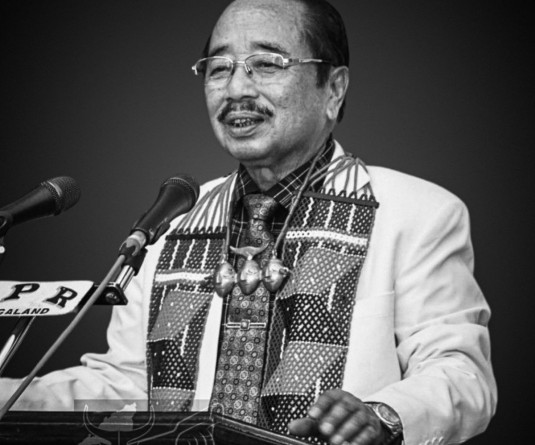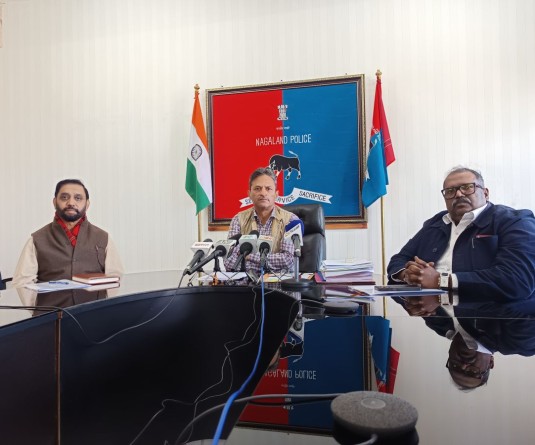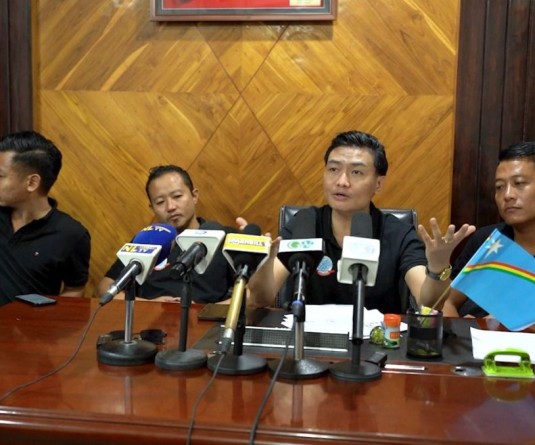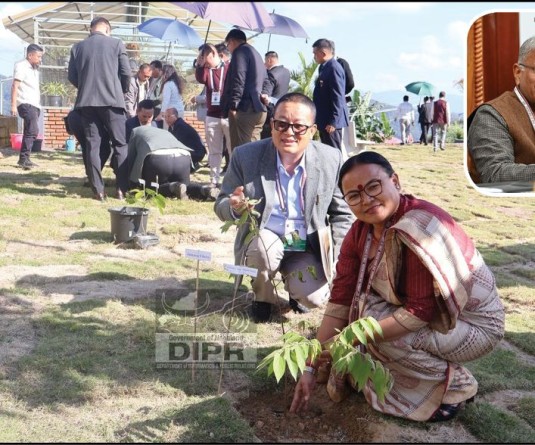
Dimapur, June 3 (MExN): An evening of poetry reading was held at Hetika Café & Bakery in Dimapur on June 2. Nokho Nyekha and Muletolu Vero facilitated the program, which was attended by 20 people from various backgrounds. Vero mentioned that the event was set up to ‘bond’ people for creative discourses. The idea was to initiate a discourse based on the poem, ‘An Introduction’, by Kamala Das.
Published in 1965, Das in the poem talks about the sadness and helplessness she felt towards the Indian society, which was patriarchal in nature. Das, who is also known for her feminist writings, prompted discussions and issues on the ‘perceived’ roles of women in the Naga society.
Nyekha remarked that the evening was organized to bring ‘like-minded’ individuals together and reflect on the issues particularly regarding women in the society today.
The main objective of the session was to acknowledge the times and the reality the poet lived in and also to reflect on her courage to speak out against the injustices of the society towards women.
Discussions arose on how abuse is prevalent in the Naga society today, but how very few are reported. The ‘patriarchal’ setup of the Naga society was also discussed where under the system, women are assigned ‘gender roles’ which they are expected to comply without question or reason and where women are not to speak their mind.
“Gender inequality exists in Nagaland as it is in the other parts of the country, it’s just that Naga men are more subtle in doing so,” a participant remarked.
Arenzung Jamir, Assistant Administrator of Sisterhood Network talking about the event remarked that the younger generation is seeking for “acceptance in all the wrong places" and that such an event "provides a good platform to be accepted.” Such an event, she felt, provides a safe ‘space’ for individuals to be vulnerable and be transparent in order to bring out issues which are sometimes shunned for various reasons.
Rozelle Mero, Founder and Managing Director, People Channel, who was also present in the reading and discussion, felt that our society has not discovered the art of listening or has not refined listening. “Once we learn to listen and absorb we understand things better and we can express ourselves better,” she opined.
Nyekha, who was encouraged by the turnout of people in the event, expressed her desire to organize another such program in Kohima, likely to be held in the later part of June.






